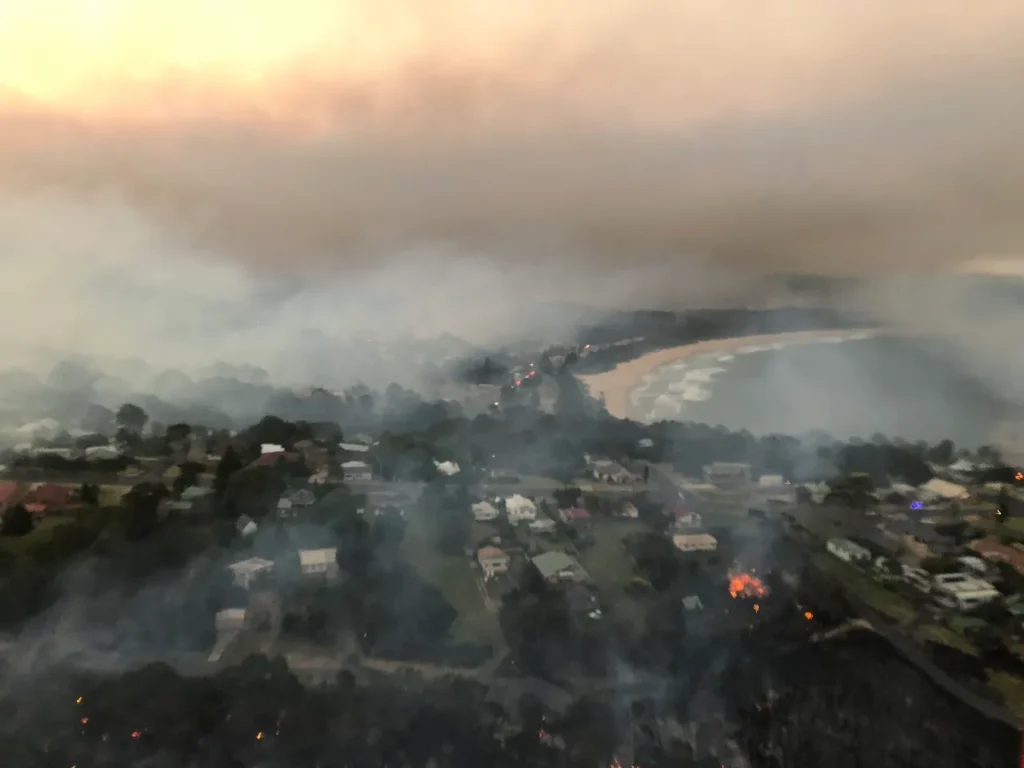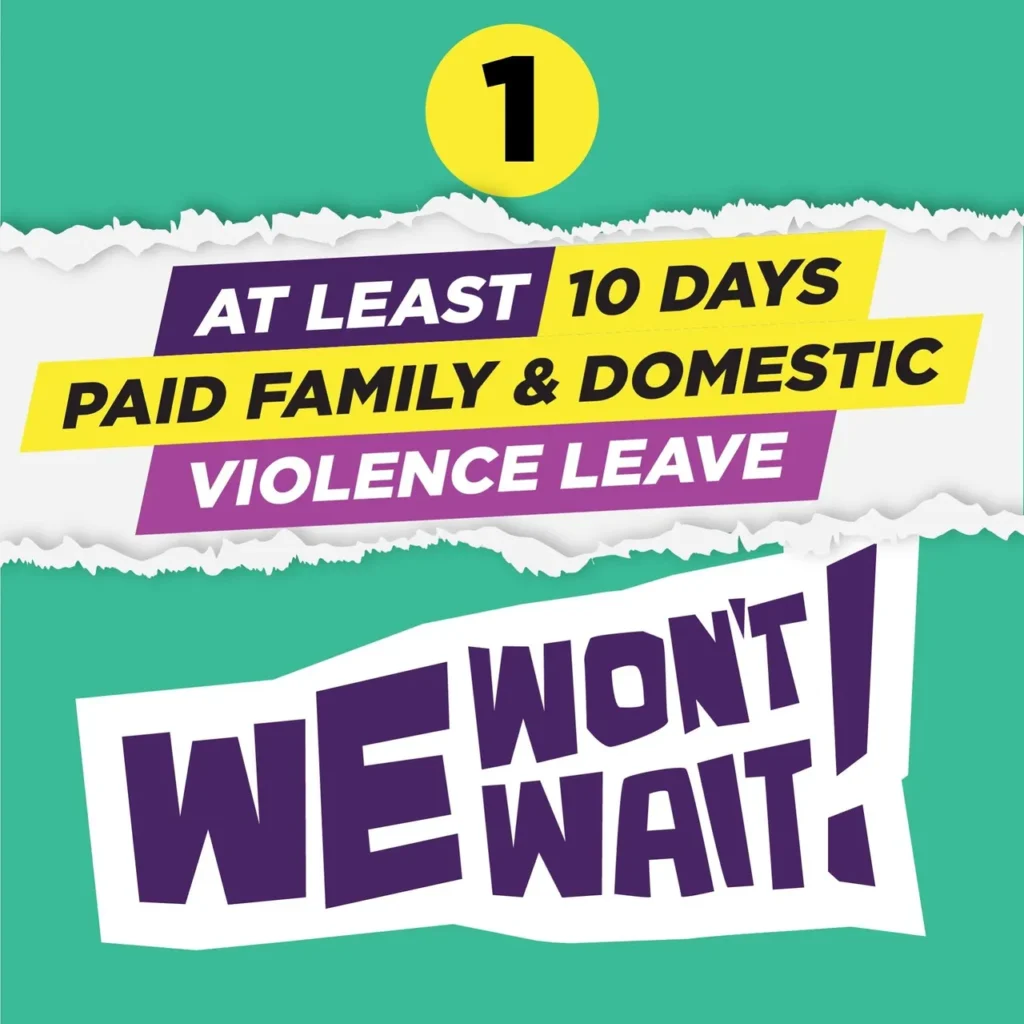
DAILY NEWS… Jo Dodds doesn’t quite remember how she managed to become President of the NGO called Bushfire Survivors for Climate Action (BS4C) but she does remember the day her feelings about climate change became visceral. She wants the NSW Planning Minister to make sure climate-impacted communities get to build back better and safer – not just faster.
By Jackie Pearson
It was four years on March 18 since a bushfire tore through the town of Tathra on the NSW South Coast, destroying 65 homes and buildings, damaging another 39 and destroying a further 70 caravans and cabins. Fortunately no lives were lost but, according to resident Jo Dodds, the community is still in mourning and the forest is “vulnerable, vigorous and dangerous” as it regrows.
She was understandably shocked to read in the news only four days after the anniversary that NSW Planning Minister, Anthony Roberts, had decided to scrap a requirement to consider the risks of floods and fires before building new homes.
“My triggers are worn out from over-use so you can ask whatever you want,” she said in response to asking to recall the events of 18 March 2018. “That bushfire started where my stepson was visiting a friend. It then worked its way along the road where I live destroying homes as it went.”
Dodds didn’t lose her home in the Tathra fire. “The fire wrapped around our property but, as it did, that was when the wind changed direction and dropped and that is what saved our house, along with some intervention from the water droppers, but we continued to fight that fire for a week.”
It was after the Tathra fire that she was put in touch with survivors of the Canberra bushfires of 2003 and Blue Mountains Bushfires and BS4CA was formed.
“We decided we wouldn’t just do a few demonstrations in Canberra but this would be an ongoing effort,” she said.
“For people like our members, who’ve lost everything they own in climate-fuelled floods and fires, it’s pretty hard to swallow a planning decision like this that places people in new homes without any regard for their future safety from these catastrophes.
“The Minister gives us this callous decision in the aftermath of the recent floods, while people are still mopping up, mourning loved ones, realising that they are not insured, and wondering how the hell to get back on their feet.
“Where’s the duty of care? Where’s the logic in putting homes into risk zones without any regard for the consequences?
“And it looks like the new Design and Place State Environmental Planning Policy (SEPP) will be scrapped. This policy would require new homes to have adequate ventilation and other aspects of liveability and basic comfort.
“We’re seeing a major outbreak of black mould in homes across Sydney right now, for instance. That’s a direct consequence of two things – homes built to substandard quality and a rapidly changing climate.
“I’ve heard too many people question why someone would build a home in a fire or flood risk area. There’s too much blame towards them. Here’s the reason this happens – because governments and planning authorities give these projects the green light and claim they’re cutting red tape. They’re not. They’re just opting for the quick buck solution – and putting lives at risk.”
Prior to the Tathra bushfire, Jo Dodds was very much aware of climate change and had been active with a local group dedicated to installing renewable energy sources on community buildings in the district.
“My father who is 83 has a cousin who is the same age, he is long retired but he spent his whole career measuring ice core samples in the Antarctic so it is something which had been I guess peripheral to my life for a very long time.”
She was elected to the Bega Valley Shire Council in 2016.
“I wanted to see Council take action on climate but it was obvious to me very quickly that it was such a toxic subject that it was actually dangerous to go near it,” she said.
“I was afraid and it wasn’t until I saw the fire and realised what was at stake for me and for the community that I decided it didn’t matter if it was dangerous or I was afraid.”
Jo believes the discourse in her community has changed immensely since the 2018 Tathra fire.
“I would say in my community there is a lot more focus on climate change as an issue. There are still a few people who are stuck in the mud who are still living in some anti-science bubble but I think there are far fewer.”
BS4C was the group which ran and won the recent legal case with assistance from EDO to sue to EPA for not developing adequate policies for climate change. They’re definitely perplexed by Anthony Roberts’ sudden decision to scrap the State-wide Planning Principles which were introduced in early December and only commenced operation on 1 March.
Former Planning Minister Rob Stokes introduced the Planning Principles with the intention of making statutory planning simpler, more consistent and more transparent. They were to be integrated into the state’s regional plans and planning instruments – the state’s development framework.
Stokes’ principles certainly did place emphasis on sustainable development, enhancing resilience, climate mitigation and adaptation.
Clayton Utz analyst Nick Thomas has theorized that Roberts killed the principles because of the “unprecedented challenges” around housing affordability and a “critical” shortage of housing supply.
Dodds would call that kicking the can down the road – and not very far down the road at that.
“The NSW Government’s focus on supporting the supply of new homes has sharpened,” Thomas said. “This, combined with his recent announcements such as the establishment of a Regional Housing Flying Squad to help clear development approvals more quickly, indicates that the Government is aiming to accelerate the pace of development assessments and determinations, and clear post-approval log jams.”
In the words of Minister Roberts: “The Premier has given me a very clear priority – delivering more homes and our principles must help me deliver on that priority.”
Jo Dodds acknowledges that “it is always dangerous to have a theory without any real information” but she believes lobbying, by property developers and the fossil fuel industry, has directly resulted in Minister Roberts scrapping the planning principles.
“I am tempted to say that whenever there is a wild swing away from what appears to be very rational and safety-focused recommendations and changes, that says to me that something happened in the background that is not transparent that changed the Minister’s mind.
“The only forces that are capable of doing that are the big and powerful forces – a big, wealthy, powerful lobby group who hit you up, so that is where my money is,” she said.
“It is disappointing when you see good policy go pear shaped like that.”
Reflecting on the resilience of Tathra, Jo Dodds said, “So much of the town has rebuilt. There are many beautiful homes back where there were ugly spaces and gaps where houses were burned and lost, but the trauma of losing your home even when insured has not gone away, you lose your sense of permanence, of peace of mind.
“There are still people like my neighbour Jan who was the first to lose her house. She is still not back in her new home four years later. Like mine, it is in a forested area and the home was probably built in the 50s. Jan has lived there safety herself for 20 years but because of the peculiarities of planning it was very difficult for them to get permission to build again and to negotiate with land owners adjacent to her.
“We can’t just expect everyone to leave their blocks of land because they are in the way of fire of flood and I would expect the government to assist communities to build back safer. You see, with the lifting in the BAL (Bushfire Attack Level), which has added an extra $100,000 to $150,000 to the cost of rebuilding Jan’s home and that cost is not covered by their insurance.
“So even the people who have had the best ride possible, they have had good insurance, there is no one I know who has come through the Tathra fire who is not still dealing with the aftermath of that event.”
The bush has also been changed permanently by that fire, according to Jo Dodds.
“I drive through the burn zone every day. That is how I get into town and back again and every time I make that drive I notice the permanent changes in that bush. The massive old trees who didn’t survive, they were burned and are now dead, and I see the massive density of the new growth.
“We were told that seven years after the fire you are actually at higher risk of the next fire because of that change in environment. It is in my face every day, it is a constant reminder and it should be a constant reminder.
“There were animals, wild animals that we all knew – we knew the individual animals because they came to our homes. A neighbour befriended a big old goanna and she found it dead up a tree. Not burned but it had died in the fire. We are still mourning all those losses and the forest is still vulnerable, vigerous and dangerous.
“I see the same thing in other areas that were burned more recently in the 19-20 fires and in the Black Saturday fires in Melbourne.”
She wants Anthony Roberts to reconsider his abandonment of Stokes’ planning principles.
“I think he had to reconsider because if we go down this track we are putting people on a path to rebuilding inferior housing that won’t just be of risk to life if there is a flood or fire, but we have just seen places in Sydney where not floods but black mould is the problem – that is climate change getting into people’s homes and into their lungs and making the beds of their children too damp to sleep in.
“He stated we are making these changes because there is a housing crisis and we need to get these people rehomed but building back better means building back safer to the extent that people on low incomes living in those homes are safe and well,” she said.
“If he is encouraging people to build inferior houses in flood zones he is basically saying go and invest in something that can’t be insured or be homeless and it is not a pretty choice.
“We are all working so hard to keep communities safe and then they go and do that. It is heartbreaking.”
What can you do?
1. Learn more about BS4CA here https://www.bushfiresurvivors.org/
2. Write to your local State MP or MLC and ask them to write to Anthony Roberts and the Premier to reverse their decision
3. Use your social media channels to tell your friends about the consequences of this decision
4. Learn more about the Tathra bushfire and others https://knowledge.aidr.org.au/resources/2018-bushfire-nsw-tathra-bushfire/
5. Email ThePoint to tell us about your bushfire or flood or climate experiences


